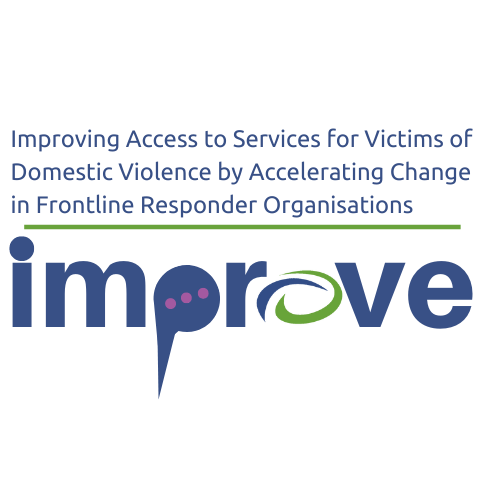13 August 2024
A typo that prevents you from getting help
Barriers for victim-survivors to reach out for help and receive assistance from professional frontline responders are manifold. We discovered this in depth when we started our project researching what keeps those affected by domestic violence from making their way into the help system. The answers, we hoped, would explain, why we still have such unacceptably high numbers of intimate partner homicide. To be honest, we already had a clue that we would discover a lot of barriers, but not that it would be so many (find the report here). If you want to tell your friends about why those affected by domestic violence do not “just break up and have their peace”, you do not know where to start. At least this video could help you to understand how perpetrators keep their victims in the relationship: It is not easy but rather tricky, if not dangerous, to leave an abusive intimate relationship. Persons affected are weary, isolated by the perpetrator and thus, unable to receive support from friends and family. Or they find themselves out of money.
When it comes to barriers on the part of the help system that keep victim-survivors from getting assistance, each sector has its specific impeding factors and elements: Police are often not specialised to deal with the problem, or they are accused of lacking empathy. Shelters often are prepared to assist women with children – however, if there is a teenage son, he is not admitted, so mothers have to stay with their sons where they wanted to flee from. Family doctors –the go-to address number one in bad relationship matters– do not dare to ask whether injuries or somatic complaints may result from violence, and instead describe pharmacological treatment.
And then there’s the helpline “Violence against Women”. Well-trained and equipped to help those in need 24/7. Since last summer women and their friends find support in any violence matters (e.g. financial and psychological) under 116016 in nearly all European countries. It would be easy and low-threshold to find help here, if there was not this problem that prevented women from receiving the help they would so desperately need: A typo. Yes! Admittedly, it is now four years past, when I walked through Hamburg in Germany, saw a billboard that drew attention to the helpline with the wrong number, namely a “1” at the place of the last “0”. Quite plausible, but wrong. A few days later, I called the helpline to tell them. Guess what they told me? The lady explained that she quite often receives similar calls also with regard to campaigns in other cities. However, these are not their but the city councils’ campaigns. So, the helpline usually doesn’t know who is when and where advertising on their behalf. Why just don’t copy and paste? Why not double-check? Why not remember that the number is not very plausible. Not to think of the consequences for the women, and their children!
One year ago, when we started to work on the German version of our chatbot (launch will take place on August 21 in Berlin btw), we did some research on already existing conversational platforms and chat offers with regard to domestic violence in Germany. We came across a well-designed homepage set up by a private initiative and after I went through the page, I froze, because, again, there was the last “zero” exchanged by a “one”. I asked myself, if I was wrong and if in the meantime the number might have changed, so I called this wrong helpline number … until soon a voice in my phone told me that this number does not exist. Of course, I wrote to the people who set up the respective page and of course, they corrected the number.
In Germany, the helpline operates under the 116016 since a dozen of years. And although it hurts to assume how many women have called not this but the wrong number, it is useless to freak out about this typo. No-one is free from making mistakes. We can be glad that we have the hotline, we can be glad that we have private initiatives and professional frontline responders who offer help in the dark epidemic of domestic violence. Still, it is important not to stop and relax on what has been reached so far. Numbers are still way too high. So, with our project – especially the chatbot, the training platforms and the upcoming policy tools – we are trying to give impulses to further professionalise the support for those in need of help and to lower thresholds and barriers. We’ll keep you updated.
About the authors
Catharina Vogt is a senior researcher at the German Police University. She completed her doctorate in psychology with her dissertation on "Respectful leadership: Analysis of its effects on followers". Her research focuses on value-oriented leadership and conflict resolution and was funded by the German Academic Exchange Service and a scholarship from Kühne Logistics University. From 2014 to 2018, she led the award-winning RespectResearchGroup at the University of Hamburg. Her current work unfolds in two projects: As part of the BMBF-funded GaTe project, she is researching precursors of intimate partner homicides. Moreover, she is co-coordinator of the EU-funded IMPROVE project, which aims to develop a chatbot for victims of domestic violence and improve the training and cooperation of professional frontline responders.


